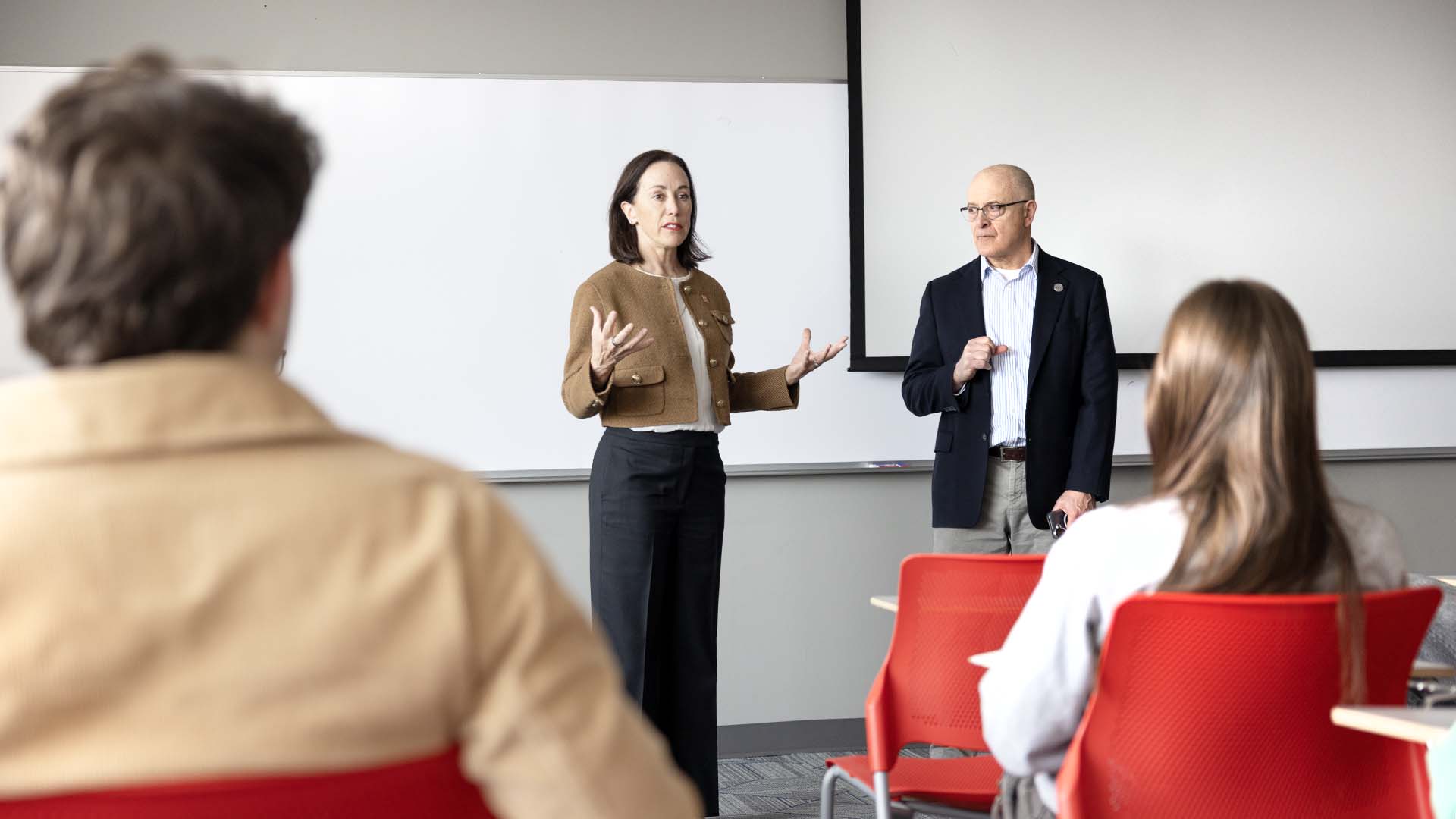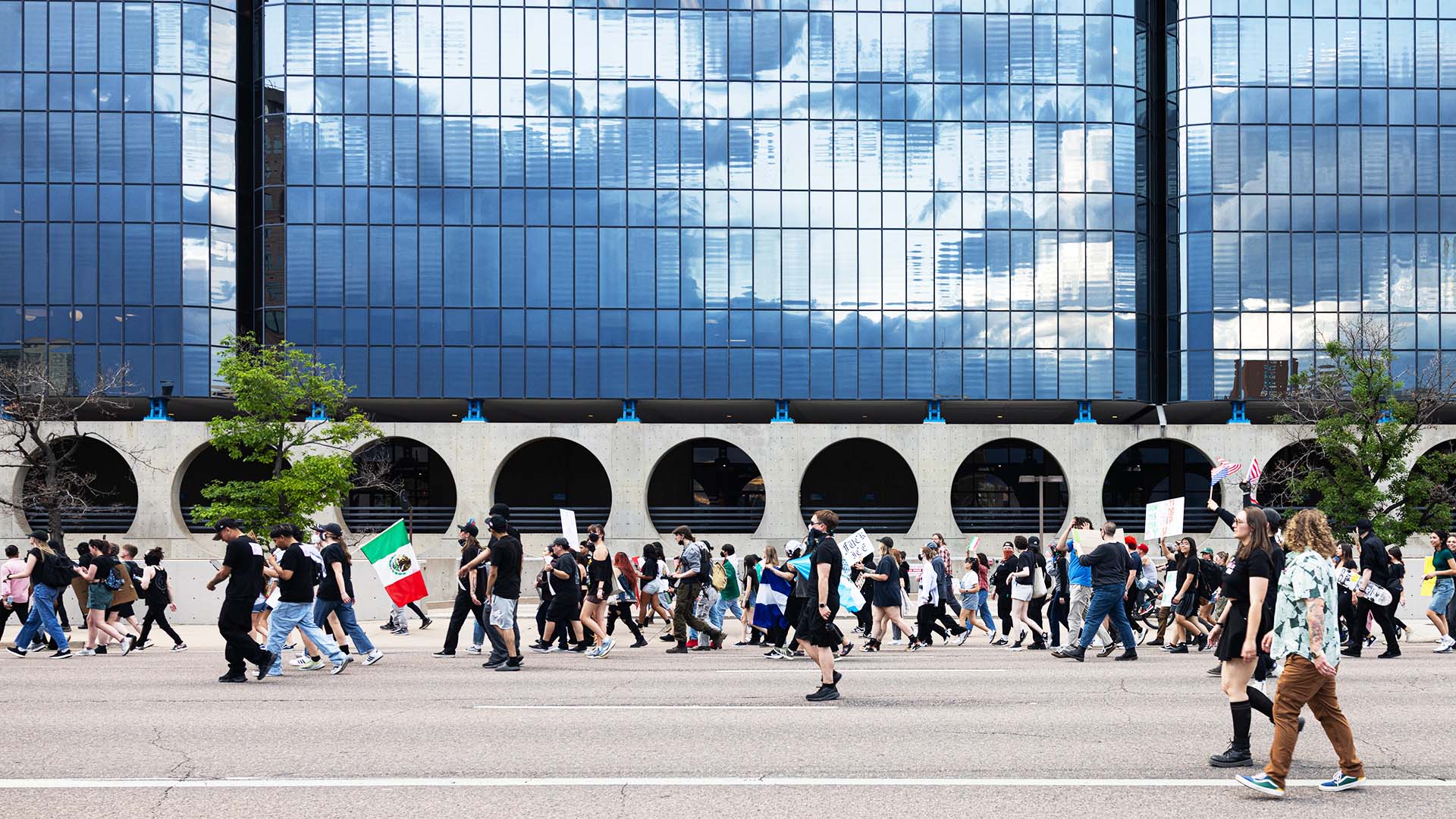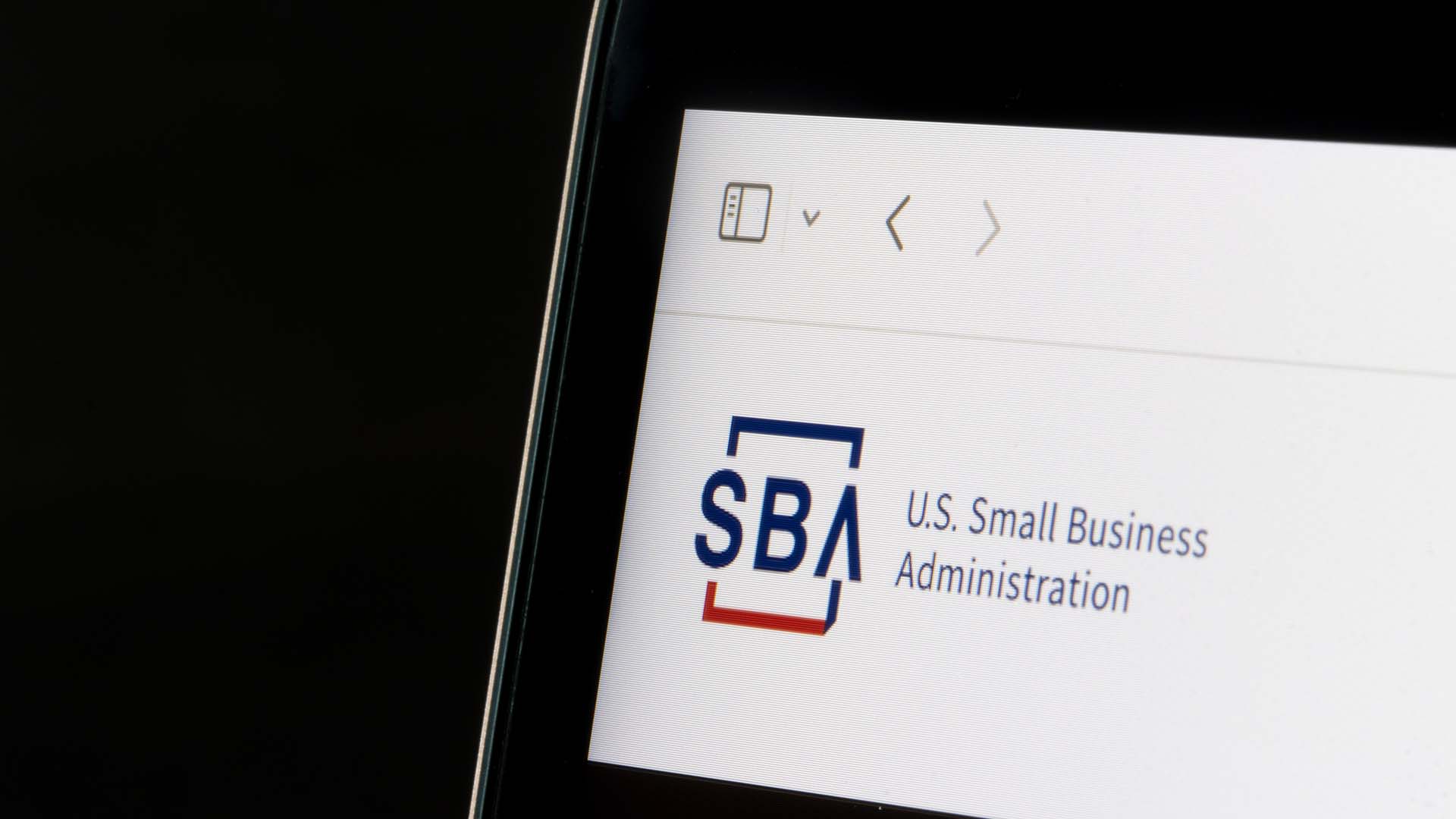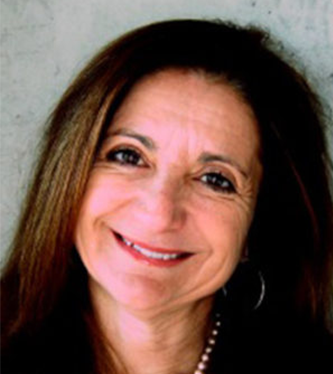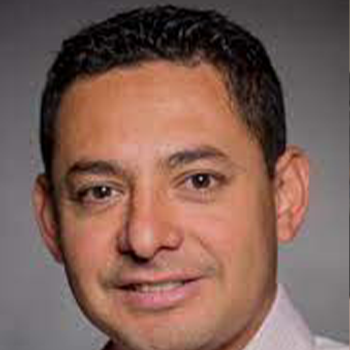Dreamers keep dreaming after Supreme Court win
DACA recipients celebrate legal victory while pledging to fight for permanent immigration reform.
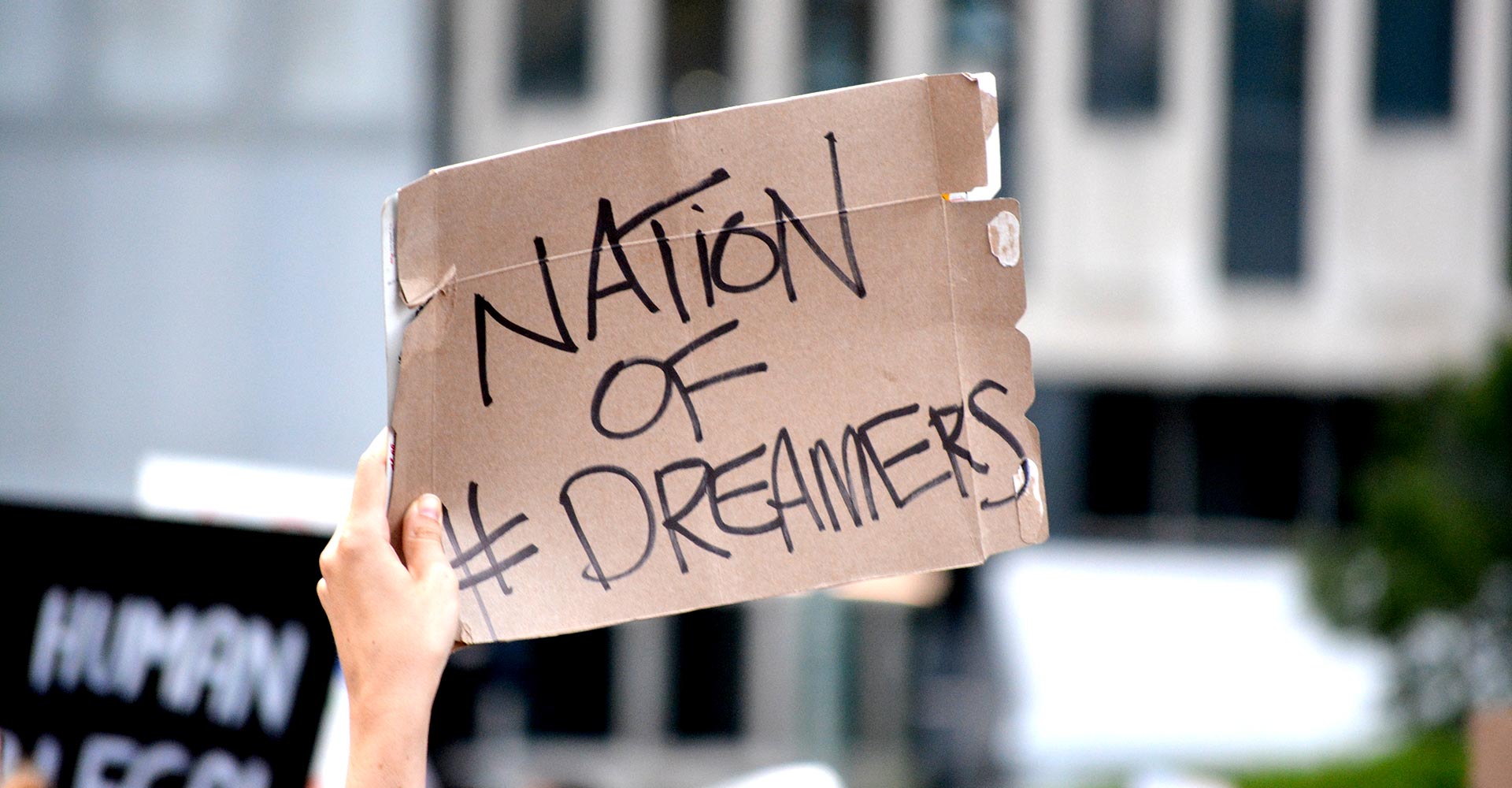
“You just have to cross the puente.”
In describing the town where she was born, Jackie Màrquez Rocha uses the Spanish word for “bridge,” referring to the Puente Internacional Córdova de las Américas that separates Ciudad Juarez, Mexico, from the U.S. border city of El Paso, Texas.
While Màrquez was born just 15 minutes outside the United States and moved to the U.S. when she was 15 months old, the bridge to a permanent life in the U.S. has been much longer.
But as a recipient of the Deferred Action for Childhood Arrivals program, she celebrated a reinforced bridge Thursday as the U.S. Supreme Court ruled 5-4 that the Trump administration’s effort to rescind DACA was “arbitrary and capricious” and thus invalid. The ruling upheld deportation protections for Màrquez and 700,000 other Dreamers who benefit from the program’s work authorizations. Still, she knows DACA isn’t a lasting solution.
The Supreme Court sent the case back to the Department of Homeland Security, leaving the door open for the administration to try to end the DACA program again. President Donald Trump indicated Friday his administration intends to submit “enhanced papers in order to properly (fulfill) the Supreme Court’s ruling” as the branches battle over procedure.
“Although I am thankful for DACA, we need to continue fighting for the DREAM Act,” said Màrquez, referring to immigration legislation that has been proposed in various iterations since 2001 without becoming law. “With DACA, we will always be in limbo. At this point, we deserve a real status and a pathway to citizenship.”

Like Màrquez, a political-science major at Metropolitan State University of Denver, Angelica Prisciliano and Eunice Callejas Solano emigrated from Ciudad Juarez and eventually made their way to MSU Denver.
“We come from a city where drug cartels and femicides were the rule of law, pretty much in the news every day back in 2005,” said Prisciliano, whose family moved to Colorado then, when she was 12 years old.
NBC News reported this year that more than 47,000 women have been killed because of their gender over a 30-year period in Mexico. Prisciliano, who graduated with a political-science degree last month, began working in policy advocacy in the spring and wants to continue advocating for immigrant rights or environmental justice.
“A weight has been lifted, but there’s also a sense of urgency because we have seen how this administration continuously looks for ways to destroy what we have worked so hard for,” she said. “So there’s a great relief and sense of community, but we’re also on guard – it’s hard not to be.”

Callejas Solano said the Supreme Court ruling is “one less thing to worry about, for now.”
Her family immigrated to the U.S. when she was 2 years old, escaping poverty in Mexico to rebuild their lives from scratch in a new country. Her parents sacrificed meals so she and her brother could eat, and they all lived together in a one-bedroom apartment.
Callejas Solano always prioritized her education, finishing high school as salutatorian. She’ll graduate from MSU Denver with a degree in communication studies in December.
“I always knew my whole purpose of doing all of this was to finish my education because my parents couldn’t get past elementary school. My goal is to be able to make all of the sacrifices worth it,” she said.
There are close to 400 undocumented students at MSU Denver, which educates more undocumented students than any other college or university in the state. The University was also the first institution in Colorado to announce and offer a special tuition rate for undocumented students in June 2012 – about three weeks before the Obama administration announced the DACA program. MSU Denver leaders reacted with messages of support and a recommitment to advocacy for DACA students Thursday, as did the Colorado Department of Higher Education.
President Janine Davidson, Ph.D., said in an Instagram video that’s she’s happy with the court’s decision, calling Trump’s attempt to end the program “a cruel attempt to undermine our DACA students and Dreamers across the country.”
“That said, we have a lot more work to do,” she said.
View this post on InstagramSo excited for the Supreme Court ruling today against Donald Trump’s cruel attempt to overturn DACA.
Davidson and Barbara Grogan, chair of the Board of Trustees at MSU Denver, also sent an email to the MSU Denver community Thursday about the historic Supreme Court rulings on LGBTQ workplace discrimination and the upholding of DACA.
In another communication directly to immigrant students, Director of Immigrant Services Gregor Mieder announced a Monday videoconference for students, with attorneys and legal experts to discuss what’s next for DACA.
“While this does in no way permanently protect and support the DACA community and does nothing to address the thousands of undocumented individuals and families in Colorado that do not have DACA status, this is of course a massive win for the immigrant-rights movement and a huge, much-needed relief for DACA recipients and their families,” Mieder wrote.
University Counsel David Fine said if the Trump administration tries to end the DACA program again, it would need to provide a lower court with a legally viable justification, and a ruling in the administration’s favor would be appealed in higher courts.
“Any such effort will likely be challenged in federal court, and a lower-court decision would likely be reviewed up to the Supreme Court,” Fine said. “The DACA program likely stays in place for now, with work authorization and deportation protections as they have been, at least until after the November election.”

For another MSU Denver leader, Trustee Marissa Molina, the court ruling was personal, as she is a DACA recipient herself and an employee of the immigration-advocacy organization FWD.us.
Molina said she spent Thursday reflecting on Sept. 5, 2017, the day the Trump administration attempted to end DACA, and earlier in her life when she realized that working hard wouldn’t open doors for her because of her immigration status.
“It was during that time in my life when I started to feel almost betrayed by the American Dream, this idea that if you work hard and you do right by people and do right by your community, you can pursue your dreams,” she said.
Emboldened by a victory in the highest court in the land, Molina looks forward to celebrating with her parents for Father’s Day weekend, then getting back to work Monday. She’s participating in the University’s call for DACA students Monday to talk about what comes next, and already penned an op-ed for Newsweek on Friday, “The Supreme Court’s DACA Ruling Still Means Congress Must Act.”.
“My message to students is for us to rest and find these moments of joy in this victory right now,” Molina said, “but to not lose sight of what our battle ahead looks like and really recommit ourselves to continue to fight equally as hard – and maybe even harder – so we can gain protections for all those who are still left behind.”

